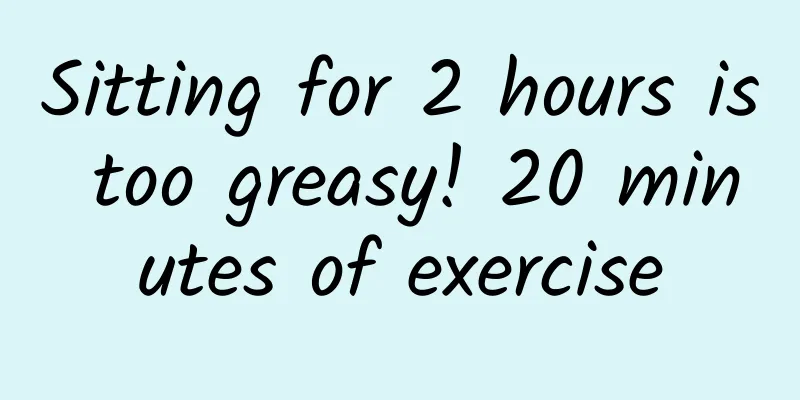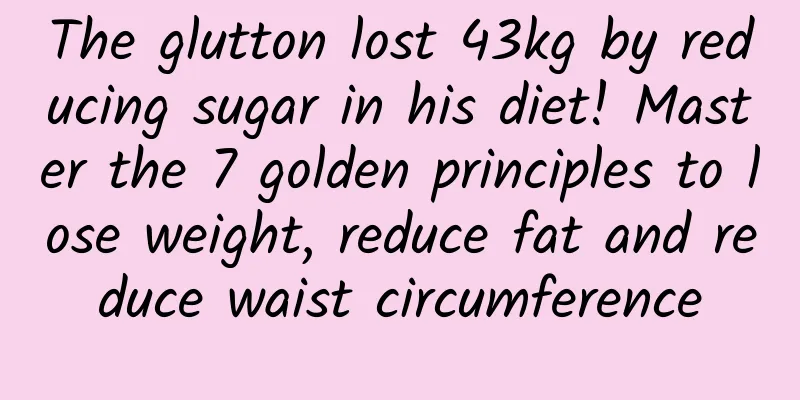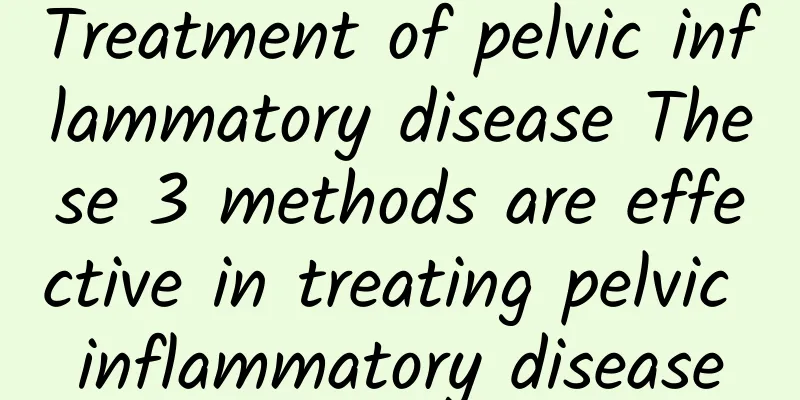Sitting for 2 hours is too greasy! 20 minutes of exercise

|
Everyone knows that sitting for a long time is a big taboo for health. If you maintain the same posture for a long time, blood will stagnate in the lower limbs, which may cause venous thrombosis. In addition, sitting for long periods of time may cause cardiovascular disease and endanger life. But how much sitting does it take to harm your health? American scholars have found that sitting for two hours straight is equivalent to reducing the positive effects of 20 minutes of exercise to zero. American research shows that sitting for two hours in a row will offset the cardiopulmonary endurance that can be developed by 20 minutes of exercise. CBS News quoted a research report published in the Mayo Clinic Bulletin, pointing out that sitting for two hours in a row will offset the cardiopulmonary endurance that can be developed by 20 minutes of exercise. In addition, whether or not you develop an exercise habit, sitting for long periods of time will affect your physical fitness level. [Long-term sitting reduces physical fitness] "Sedentary lifestyles can lead to lower physical fitness levels, which can have negative consequences that increase the risk of disease," said study author Dr. Jarett Berry, assistant professor of internal medicine and clinical sciences at UT Southwestern Medical Center, in a statement. The researchers examined 2,233 individuals aged 12 to 49, observing their cardiorespiratory endurance levels, average daily exercise, and sedentary habits, and excluding the influence of a history of diseases such as heart disease, asthma or stroke. Scholars have found that sitting for two hours in a row is equivalent to wasting the cardiopulmonary endurance that can be developed by exercising for 20 minutes. Dr. Jarrett Berry believes that in addition to maintaining proper exercise habits, avoiding long periods of sitting in daily life is also an important strategy to improve physical fitness and health. American scholars suggest that you try to find time to move your body. Even just standing up and stretching is better than sitting for a long time. [Scholars: Find opportunities to move more] Dr. Jacquelyn Kulinski, who participated in the study, said that when sitting for a long time cannot be avoided, we should find ways to keep our body moving. So when you are trapped in the office for a long time, it is good to change your sitting posture from time to time, stand up and stretch, or take a walk while waiting for a call. The researchers also proposed other tips to help reduce the health threats of prolonged sitting, such as taking a short walk during lunch breaks, using a pedometer to count daily distance walked, taking the stairs instead of the elevator, or being more extreme and replacing office chairs with fitness balls or entire desks with treadmill desks. |
<<: Coconut water is a must! 10 benefits for weight loss are also on the list
>>: 5 yoga moves to cure back pain
Recommend
Double chamber decompression painless abortion
Double-chamber decompression painless abortion, t...
Prolactin and Hyperprolactinemia
Symptoms of hyperprolactinemia include breast pai...
How to quickly solve dysmenorrhea? These few tips for treating dysmenorrhea (2)
What to eat for dysmenorrhea? 1. Red dates We all...
How much does visual painless abortion cost?
With the development of modern medical technology...
Build perfect abs! Just rely on supine punching exercise
【Supine punching exercise】 Number of exercises: 2...
What are the causes and symptoms of ovarian cysts?
What are the causes and symptoms of ovarian cysts...
How to perform an abortion
How is an abortion performed? Abortion is divided...
What medicine is used for cervical erosion? Use erosion suppositories
Cervical erosion is a disease that troubles many ...
Post-marriage dysmenorrhea alerts uterine disease
We often hear the elderly say: Dysmenorrhea is ok...
Why do women still suffer from adnexitis without sexual life?
Many female friends would like to know the reason...
What are the causes of uterine fibroids in daily life?
Uterine fibroids are a major disease that many wo...
Use food to adjust hormones and avoid gaining weight again! If you do intermittent fasting wisely, you can still lose weight at the age of 40
If you fast properly, it will not affect your hor...
Is cervical erosion of degree 2 serious? 4 things to pay attention to when you have cervical erosion of degree 2
When cervical erosion is still at grade 1, the pa...
Patients with chronic pelvic inflammatory disease should receive symptomatic dietary therapy
Traditional Chinese medicine can classify chronic...
Adele lifts weights to relieve stress and treat anxiety! Become physically and emotionally stronger
British singer Adele, who appeared on the cover o...









